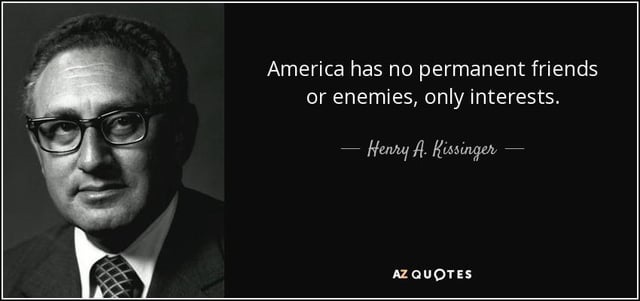
The letter asks Congress to demand a classified intelligence assessment that answers questions such as the following: Whether America’s allies believe the US remains a stable democracy; whether they regard the US as a reliable partner; whether they’re hedging their security by seeking alternative alliances without the US; and even whether they’re developing contingency plans for wars “in which they might, for the first time in generations, have to fight against US forces if America were to align with Russia against NATO or Ukraine, for example.” Let that sink in, Andreas Kluth, a Bloomberg Opinion columnist covering US diplomacy, national security and geopolitics, writes.
If the Polish episode (those military drones over Poland, where NATO jets shot them down) highlights Trump’s inconstancy within NATO and the Qatari event (the Israeli bombing of Qatar, with the aim of killing Hamas leaders) shows his weakness toward Benjamin Netanyahu, America’s actions in Greenland point to downright malice.
That semi-autonomous territory belongs to Denmark, one of America’s oldest and tightest allies. And yet Trump keeps threatening to seize Greenland “one way or the other.” Last month, the Danish foreign minister summoned the top US diplomat in Copenhagen, for the second time this year, to protest covert operations that had come to light. Some Americans had infiltrated Greenland to make lists of people who might turn against Denmark and support a US takeover. This is not friendly.
The list of friends and allies scorned, humiliated and disdained continues: Trump wants to annex Canada, which shares with the US the world’s longest undefended border and now views Washington as one of its top threats. His intelligence director has blocked information about Russia from going to the Five Eyes, an intelligence-sharing arrangement with Britain, Australia, New Zealand and Canada that is one of America’s most intimate and useful alliances (and has apparently saved many American lives by foiling terrorist plots).
Trump casts doubt on AUKUS, a budding alliance among the US, UK and Australia, and on the Quad, a partnership among the US, Japan, Australia and India that was meant to blossom into an alliance one day. From Taiwan and the Philippines to Estonia and Germany, no American ally can be sure that Washington, in a pinch, would have its back.
Trump’s willful destruction of America’s alliance capital is so self-defeating that it “discombobulates us,” says Graham Allison at Harvard University, a doyen among international-relations scholars. It was by deepening and widening its alliances after World War II that the US was able to deter another world war for eight decades and to limit the number of nuclear powers to just nine so far, a degree of geopolitical stability that Allison deems “unnatural” by historical standards. Trump doesn’t get this and instead interacts with allies as if he were a Dickensian landlord squeezing his tenants or a mob boss shaking down a mark.
The way things are going, that allied scale will remain a pipe dream. The US’ allies are instead reacting as predicted by the “balance-of-threats” theory in international relations. They’re forming other trading and security networks, excluding the US to hedge against hostility by Trump or a future president. The Europeans in their notoriously disunited Union are pulling closer together. The UK, France and Germany are signing backup defense treaties in case NATO should falter.
All of them are talking about how to adapt their nuclear stances to fit a world in which the US “umbrella” may not be there when it rains.
read more in our Telegram-channel https://t.me/The_International_Affairs

 10:29 20.09.2025 •
10:29 20.09.2025 •






















